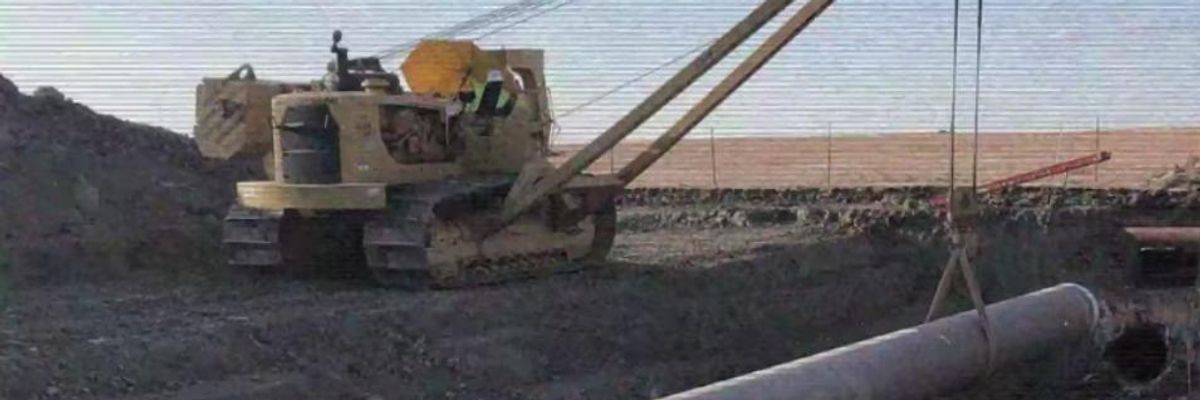With the coronavirus pandemic keeping them from gathering to stop the construction of the Keystone XL tar sands pipeline, indigenous rights advocates displayed a "virtual banner" as oil giant TC Energy began placing pipes in the ground this week despite legal challenges to the pipeline.
"Not Today. Not Tomorrow. Not Ever. No KXL. Mni Wiconi," read the virtual banner, shared in a video posted to Facebook by the climate action group 350.org.
"We do not consent to their dirty tar sands KXL pipeline," the Indigenous Environmental Network (IEN) tweeted.
In an email to supporters late Friday, IEN explained how the construction was taking place less than a month after federal Judge Brian Morris ruled that the U.S. Army Corps of Engineers had improperly issued a permit to TC Energy--authorizing it to construct the pipeline at water crossings along its nearly 1,200 mile route from Alberta to Nebraska--without conducting a thorough review of the project's environmental impact.
Separately, wrote campaigner Joye Braun, "the Rosebud Sioux Tribe, Fort Belknap Tribe, and the Indigenous Environmental Network have ongoing lawsuits against the federal government regarding the approval of KXL, arguing that the international border crossing approval was illegal, that it violated treaty rights, and that construction during a global pandemic not only puts communities at risk of COVID-19 infection, but raises the risk of sexual violence perpetrated upon Native women."
A ruling has not yet been handed down in those cases, but hearings took place in April.
"Despite the legal challenges, pipe has been laid at the international border crossing between the United States and Canada--even while the drop in tar sands and oil prices makes tar sands inviable," wrote Braun.
IEN called on supporters to fight the construction of the pipeline by contacting TC Energy's financial backers including Chase Bank and Liberty Mutual, Alberta's Premier Jason Kenney, and "three governors who could force TransCanada to comply with federal and state permits and conditions: Montana Gov. Steve Bullock, South Dakota Gov. Kristi Noem, and Nebraska Gov. Pete Ricketts."
"This pipeline will not be built," wrote Braun.
